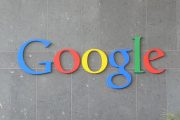
Big Tech now has the capacity to shift up to 15 million votes in an American election. This isn’t the judgment of some far-right watchdog group but of Dr. Robert Epstein, a liberal and the senior research psychologist at the American Institute for Behavioral Research and Technology. He has long been studying GoogTwitFace’s ability to manipulate public opinion and hence voting and, despite being of the Left, is disturbed by the prospect of a high-tech oligarchy choosing our leaders.
Epstein hasn’t been prominent in the news of late. But his warning must be placed front and center because, as The Washington Post’s ironic motto warns, “Democracy Dies in Darkness.” And darkness is precisely what GoogTwitFace (Big Tech) prefers operating in — especially when, for example, trying to sway elections, such as our upcoming midterms.
Breitbart’s Allum Bokhari reports on this story, writing:
Republicans think a “red wave” is inevitable in November. But the Democrats still have one big advantage: the ever-tightening grip of Big Tech censorship, which will be used to prevent undecided voters from encountering even the most mainstream conservative news in the runup to the next election. Republicans will have a strong message — but what if voters are prevented from hearing it?
In the runup to the 2020 U.S. presidential election, Google completely suppressed Breitbart News from its search results. Compared to 2016, Breibart [sic] News went into the 2020 election with a 99.7 percent reduction in visibility for its links on Google search. The censorship was so severe, no-name blogs with plagiarized headlines and content would appear in search results before the original Breitbart News articles. [Note: The same happens with The New American.] On searches for the term “Joe Biden,” Google cut visibility on Breitbart News links to zero.
Bokhari then reminds us that GoogTwitFace suppressed the Hunter Biden laptop story in the name of stopping “misinformation.” Yet the basis for this — the notion that it was false and Russian propaganda — was itself disinformation.
This was merely one example of Big Tech manipulation, but a significant one. A poll of 2020 Biden voters found that 17 percent of them would’ve reconsidered their vote had they known about the laptop story. Of course, factoring in all the other suppressed and spun news gives some idea of GoogTwitFace’s profound impact.
Also lending perspective is what UCLA political science professor Tim Groseclose wrote in his 2011 book Left Turn. To wit: “Media bias aids Democratic candidates by about 8 to 10 percentage points in a typical election.” Scary?
Now consider that Groseclose was evaluating only mainstream media bias. What’s the effect of adding to the equation the manipulation by social media, where many people get all or most of their news?
Well, remember when Hillary Clinton, frustrated and revealing her superciliousness and grammatical incorrectness, shrieked during the 2016 campaign against Donald Trump, “‘Why aren’t I 50 points ahead?’ you might ask!” Closer to the Truth is that absent the manifold bias, she might’ve been 50 points behind.
Bokhari goes on to outline other threats. He mentions that “NewsGuard, the establishment ‘misinformation’ watchdog that received funding from the Pentagon and whose software is being rolled out by millions of schoolteachers across the country, recently downgraded Fox News in its rankings of trustworthy and untrustworthy news sources.”
Bokhari mentions that Breitbart has been downgraded as well, meaning that people accessing it and Fox may see a disinformation warning. Understand the implications: If these more “mainstream” alternative entities are getting this treatment, so are all other conservative/traditionalist sites, including The New American.
Naturally, however, “the sources that pushed the Russiagate hoax and said the Hunter Biden laptop was ‘Russian disinfo’ — a claim repeated by NewsGuard’s co-founder — receive no such warning label,” Bokhari points out.
The writer then mentions some other censorship techniques:
- Facebook, unable to stop conservative news dominance via algorithm changes alone, is simply stopping the game — it’s de-emphasizing all news and focusing on a “creator economy.” Facebook also did this after the 2016 election, and it “resulted in engagement on Donald Trump’s page dropping by almost half.”
- Taxpayer-funded NPR is running a series on media misinformation and disinformation, focusing on, of course, conservative media almost exclusively.
- Regulatory gridlock. “The goal of the misinformation panic has always been to delegitimize conservative viewpoints and give Big Tech a pretext to censor them. So long as the Supreme Court continues to block efforts to address corporate censorship, this trend will only worsen. As things stand, tiny local radio and TV stations are subject to more stringent political neutrality requirements than Google, Facebook, or Twitter.”
- The result is that GoogTwitFace is becoming a de facto regulatory agency, with Facebook’s $150 million “Oversight Board” a prime example.
In reality, it’s impossible to relate all the types, and total impact, of Big Tech censorship in one article. But I’ll close with an example of how the establishment censors yours truly and The New American itself.
When crafting a piece, I often link up to previous articles I’ve written that provide background information. Believe it or not, though, since I’ve penned literally thousands of pieces over the years, the easiest way for me to find a given article is the same way you would: via a search engine.
Yet on more than once occasion, I’d put my name in quotation marks (“Selwyn Duke”) and the relevant search terms into Google and get nothing — not on the first few pages, anyway. And most search engine users don’t go beyond them. But here’s the kicker:
I’d sometimes copy and paste those search terms into the DuckDuckGo engine, and my article would be prominently displayed as one of the very first results. A reader contacted me shortly after one of these incidents, do note, and told me he’d had the same experience.
The point: If this occurred with me, it’s also happening to unknown thousands of other conservative entities and individuals. It isn’t as if some ne’er-do-well has to be sitting behind a computer, either, pressing buttons, rubbing his hands together and cackling with glee at how he’s scuttling your efforts. All this is done by computer algorithm, coldly, efficiently, automatically, as a virtual Terminator assassinates the Truth.
This matters because political contests are determined by undecided voters, and such people often tune in to the news just a week or even a few days before an election. And what do you think they’ll “learn” when Googling the issues and candidates? As with a computer, it’s garbage in — Nancy Pelosi out.
Republicans may still take Congress in November. But if they do, you can bet on this:
Whatever the victory margin, it would’ve been greater without GoogTwitFace’s dark hand of informational death.



